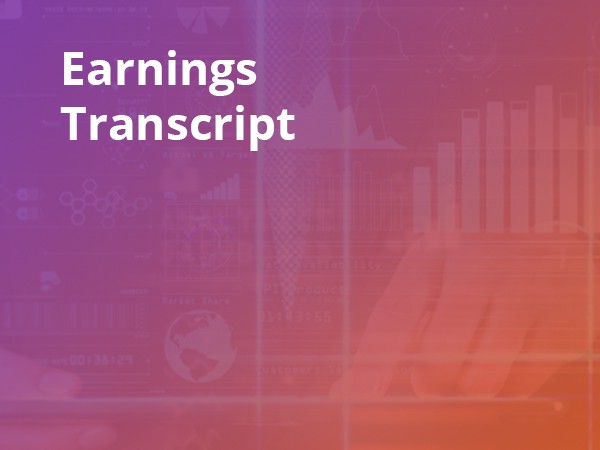In writing against the establishment of “positive rights” such as the right to education, Hayek is taking an extremely contrarian position. Already by 1948 the United Nations Universal Declaration of Human Rights, in Article 26, described education as a “basic right.” The full article states that:
1. Everyone has the right to education. Education shall be free, at least in the elementary and fundamental stages. Elementary education shall be compulsory. Technical and professional education shall be made generally available and higher education shall be equally accessible to all on the basis of merit.
2. Education shall be directed to the full development of the human personality and to the strengthening of respect for human rights and fundamental freedoms. It shall promote understanding, tolerance and friendship among all nations, racial or religious groups, and shall further the activities of the United Nations for the maintenance of peace.
3. Parents have a prior right to choose the kind of education that shall be given to their children.
Throughout the 1960s and 1970s, US states adopted or amended language in their constitutions to provide free public education. By 2009, the European Union in Article 14 of its Charter of Fundamental Rights declared that “[e]veryone has the right to education and to have access to vocational and continuing training.” Hayek is thus very much out of the mainstream with his views on education. His position is guided by his deeply-held philosophical principles, an examination of which may be instructive.
Positive and Negative Rights
Hayek clearly differentiates positive rights from negative rights, a distinction which lies at the heart of his rejection of education as a right. Negative rights, such as the right to freedom of expression or of religion, always have the dual character of restricting the power of the state and of protecting individual liberty. These take the form of “the state shall not…”. Positive rights, by contrast, place a demand or obligation on the state to do something specific. The right to vote, for example, is a positive right (one of the few Hayek recognizes), since its exercise cannot be accomplished by individuals left to themselves, as is the case with the right to free speech. Instead, the state must hold elections, produce ballots, open polling places, count ballots, publicize the results, etc.
Positive rights require the consent of a counterparty which has voluntarily accepted its role to secure such rights. They are more common in private associations and in the private sphere than in the political realm. A member of a country club, for instance, may have positive rights to reserve a tennis court or a dining room, by terms spelled out in the bylaws to which the member has consented by joining the club. The club has the obligation to comply under the terms of the bylaws, and the member retains the right to exit the club by resigning if it fails to fulfill its obligations to the member.
Even in the private sphere of the family, Hayek notes that it is meaningful to speak of a child’s “right to be fed, clad, and housed,” since the parents are the de facto consenting counterparties of those rights. In the case of political rights, “we are all made to support the organization of government,” and as a result, we do have legitimate claims upon government to secure our political rights and to have a share in the services government provides (LLL 302). This of course raises the question of what services the government should rightly provide. Just as Hayek never believed in laissez-faire economics, he also rejects the minimal state. Hayek thinks it is “unquestionable” that the government should use its power of taxation to provide those services which the market cannot secure adequately, if at all, such as public goods (LLL 400-401). Other legitimate functions of the state include the administration of the law and courts, police and defense, enforcement against monopolies, central banking, establishing and upholding standards such as weights and measures, rules of traffic, and others.
Hayek argues that many citizens and politicians fall into the error of thinking that since the state can legitimately use taxes to fund some services, it should provide all the services we might want in a near ideal society. For Hayek, it is too easy to move from such legitimate rights and their counterpart duties into a demand for a list of socially desirable things claimed under an ill-defined notion of “social justice.” He writes:
To the negative rights which are merely a complement of the rules protecting individual domains and which have been institutionalized in the charters of organization of governments, and to the positive rights of the citizens to participate in the direction of this organization, there have recently been added new positive ‘social and economic’ human rights for which an equal or even higher dignity is claimed. These are claims to particular benefits to which every human being as such is presumed to be entitled without any indication as to who is to be under the obligation to provide those benefits or by what process they are to be provided. (LLL 303).
“Society” is not a counterparty. There is no one in fact who voluntarily takes up the responsibility to provide others with these positive social and economic rights. In this regard, Hayek takes issue with Franklin Delano Roosevelt’s much-heralded “Four Freedoms” speech. It thoughtlessly combines well-established negative political rights (freedom of speech and freedom of religion), with which the state is able to comply, with novel and baseless positive social and economic rights (freedom from want and freedom from fear) which have no obligor.
For Hayek, the whole of the UN Declaration of Universal Human Rights makes this error. It illicitly asserts a right to, among other things, employment, paid holidays, cultural life, and, as we have seen, an education. As socially desirable as these all may be, they are not rights in any sense of the word which a court would recognize. There is no counterparty for whom it is clearly the duty to secure these “rights.” Most seriously for Hayek, the UN Declaration treats society as something constructed by design and directed by a conscious will, not as the result of spontaneous order generated by millions of individual actions and choices cohering into structures and institutions which have proven themselves as useful for social order.
Hayek worries that this confusion about rights threatens the preservation of the genuine rights upon which life in a free society entirely depends. He writes:
To speak of rights where what are in question are merely aspirations which only a voluntary system can fulfil, not only misdirects attention from what are the effective determinants of the wealth which we wish for all, but also debases the word ‘right’, the strict meaning of which it is very important to preserve if we are to maintain a free society (LLL 307).
The belief in these positive rights assumes society is a hierarchy whose members all serve one end, not a spontaneous order of free individuals (LLL 275, 305). For Hayek, every case in which society is thought of as a taxis and not a cosmos comes with a cost to liberty. He writes that individual freedom is lost since all must do what they are instructed to (LLL 304). This in turn makes society “totalitarian in the fullest sense of the word” (LLL 305). Earlier in this text, Hayek writes that only a government with totalitarian powers can try to bring out equal positive and economic rights (LLL 283). Even assuming the state could achieve this ideal of social justice (which it cannot for Hayek), the cost would be the complete loss of individual liberty.
The expansion of personal rights to include education, then, does not benefit the citizens, but instead robs them of their freedom. Hayek writes:
Though some of the aims of the welfare state can be achieved only by methods inimical to liberty, all its aims may be pursued by such methods. The chief danger today is that, once an aim of government is accepted as legitimate, it is then assumed that even means contrary to the principles of freedom may be legitimately employed. (CL 376)
Hayek on Education
What then is Hayek’s view of education? He holds that education is a duty of every citizen, not a right. The state may legitimately require a certain level of education for everyone, such as a high school diploma, even against the parents’ wishes. This compulsion alone should be enough to signal that education is a not right, since in no other cases does the government compel the exercise of a “right.” The requirement of a certain level of learning is in the interests of both the state and the citizens. Hayek notes that societies with democratic institutions fare better when their citizens are educated (CL 499). In addition, a basic education fosters a common set of values in the society. For the citizens, education benefits them by equipping them with the skills they need to offer their goods and services to others in a competitive market economy. In cases where the parents cannot afford to educate their children, the government should provide funding. Hayek holds that only in the rarest cases should the government operate the schools.
“The distinction of the state’s power to mandate education from the state’s role in providing the education is key to Hayek’s argument.”
Requiring education in the populace is a legitimate demand of the government. Hayek approvingly cites what John Stuart Mill calls “almost a self-evident axiom” that the state should compel a certain level of education for all citizens. For both Mill and Hayek, the proper role of the state is confined to requiring “parents and guardians to provide for those under their care a certain minimum of education” (CL 499), but not to be the provider of the provider of that education. The distinction of the state’s power to mandate education from the state’s role in providing the education is key to Hayek’s argument. And it is exactly this which gets lost in the widespread view that education is a right.
The “Right” to Education Missing in State Constitutions
Hayek’s worry that the supposed right to education would lead to an expansion of the government’s power is borne out when we look at the state constitutions and their articles on education. Not one of the 50 U.S. state constitutions ever uses the language of a “right to education.” Instead, the constitutions speak of the state’s obligation to provide a free public education where the schools are run by the government. In fact, 37 states have “Blaine Amendments” or other language prohibiting the funding of non-public primary and secondary schools. The “right” to education has led to state-sponsored schools, the support of which at the primary and secondary levels alone represents 6-7% of the U.S. GDP, which is larger than the retail sector. In many districts, the public school is a de facto monopoly. This is very far from Hayek’s vision of state-operated schools being rare.
There are at least three issues with the current system of state-sponsored schools. First, just as you would not want the government as the only source of information and news (LLL 419-420), you should not want it as the sole provider of education. Hayek quotes Mill’s statement in On Liberty that a state school system can be used to mold people according to the whims of those in power and thus “establishes a despotism over the mind” (CL 498).
Second is a fairness issue. Hayek fervently believes that the state should treat all citizens equally. While some parents and students are happy with the educations being offered by their local public schools, only 22% of parents in a recent survey felt positive about the direction of education and only 8% of teens in another survey reported that their schools did an excellent job. Families with higher incomes have more ability to give their children an alternative to the local public school, which is another way of saying that the children of the poorest families are most at risk for the worst academic outcomes.
Third are the poor results. In a recent report issued for the 2024 school year, only 28% of 8th grade public school students were rated as proficient in math, and only 30% of 8th graders were proficient in reading. Is it meaningful to speak of the right to a free public education when less than a third of the students meet even basic levels of proficiency? In fact, there are now lawsuits in which former students are suing their public schools for negligence and breach of implied contract to educate them to a standard of proficiency. Those schoolchildren who do not attain proficiency in reading and math face a lifetime of lower earnings and have very little chance of improving their socio-economic status, an outcome which Hayek would say is manifestly unfair.
For more on these topics, see
Far from empowering the individual citizen, the supposed right to education has created an educational monopoly for many of the nation’s students, with low levels of academic attainment and reduced earnings potential as its consequences. The Hoover Institution estimates a $31 trillion loss in GDP in today’s dollars due to learning deficits from the pandemic alone. One response to this grim reality would be to insist on the right of parents to choose the school for their children under Article 26.3 of the UN Declaration. Although Hayek is completely dismissive of the UN Declaration, the assertion of parental rights is true to his philosophical principles both because these rights serve to limit the coercive power of the state and because parental rights recognize the authority of the government to require education while allowing the market to provide parents with options for their children.
Footnotes
[1] James Diamond, Jocelyn Durand, and Charlie Rolason, “Vast majority of Americans believe students deserve an equal opportunity to pursue higher education.” Ipsos. July 11, 2022.
[2] References are to the Collected Works of Hayek, University of Chicago Press, volume XVII, The Constitution of Liberty, abbreviated as CL, edited by Ronald Hamowy, and volume XIX, Law, Legislation, and Liberty, abbreviated as LLL, edited by Jeremy Shearmur.
[3] Alli Aldis, “New K12 Teacher Survey Indicates Morale Crisis Among Educators.” EdChoice. May 7, 2024.
[4] Claire Cain Miller, “Today’s Teenagers: Anxious About Their Futures and Disillusioned by Politicians.” New York Times. January 29, 2024.
[5] NAEP Report Card: Mathematics, 2024. Grade 8. Nation’sReportCard.gov.
[6] NAEP Report Card: Reading, 2024. Grade 8. Nation’sReportCard.gov.
[7] Eric Hanushek and Bradley Strauss, “A Global Perspective on US Learning Losses.” Hoover Institution. February 14, 2024.
*Mike Kane teaches economics and philosophy for the Penn Initiative on the Study of Markets at the University of Pennsylvania.



























